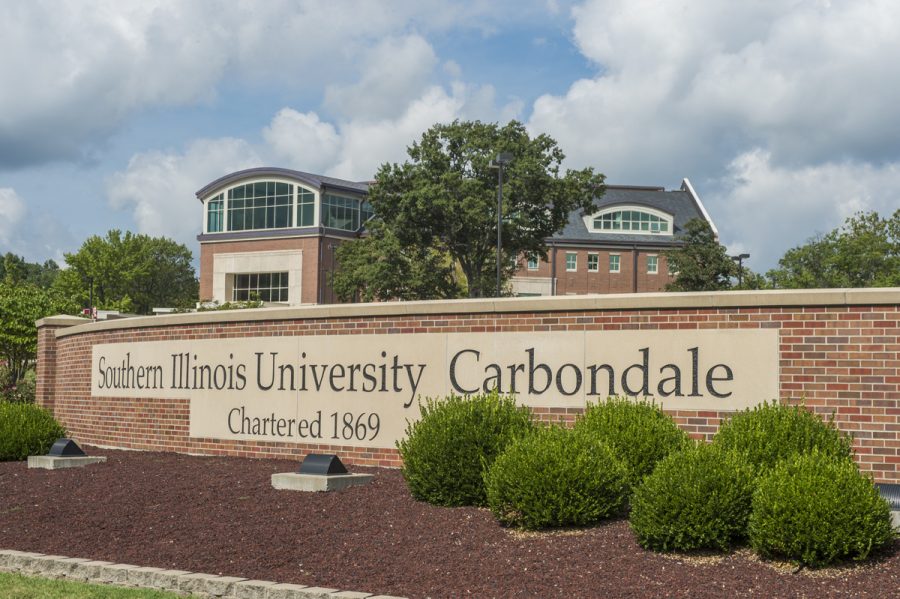State pension bill alarms SIUC staff
September 9, 1997
A group of SIUC staffers opposed to certain lines of the 1997 Pension Bill, signed by Gov. Jim Edgar on July 7, are seeking to rally support for their cause before the General Assembly’s October veto session convenes.
House bill 110 was designed to boost the pension benefits of state employees benefits which currently rank 49th in the nation. The law imposed a 2.2 percent flat rate formula to determine the percentage salary received for each year of service, eliminating the sliding scale now in place.
The legislation also would:increase the benefit maximum from 75 to 80 percent.
Advertisement
reduce the required age for retirement without penalty from 35 to 30 over a five year period.
eliminate the practice of employees cashing in on unused sick days.
require retirees to pay 5 percent of their health care premium for each year of service less than 20 years.
To receive benefits from the state, a worker must complete at least five years of service.
Don Wilson, vice president for University Services and board treasurer, has said the bill constitutes a win-win-win situation.
Wilson said SIUC’s faculty and staff, the University and the state are all winners.
However, some University workers disagree with Wilson’s analysis.
Advertisement*
Ruth Pommier, receptionist at the Southern Hills apartment complex, contends that state workers with more than five years and less than 20 years of service are getting a raw deal with respect to their health care benefits.
I’m downright mad, Pommier said.
Pommier, who is spearheading the opposition movement, said it has garnered a lot of support both on and off campus. She argues that state employees who were promised free health care coverage when they were contracted by the state are still entitled to those benefits.
We did have a commitment, Pommier said. A commitment is a binding agreement between two parties. I was told if I worked five years then I got these benefits. I honored that commitment, and now I want them to honor their end.
Under the bill, 100 percent coverage has been axed in favor of an item that places some of the financial responsibility on the worker.
Wilson said the change was necessary because an increase in benefits requires funding.
Something had to be sacrificed, Wilson said. It’s give and take.
Pommier said it is not the responsibility of the employee to find funding alternatives.
I wasn’t asked to figure out how to pay for these benefits when I came here (SIUC), so I feel it’s not my responsibility now, Pommier said.
Pommier has circulated petitions and e-mail messages to area workers and political offices. Her goal is to pressure the General Assembly into injecting a grandfather clause, allowing workers who were employed before Jan. 1, 1998, the day the bill goes into effect, to retain their original health care plan.
Wilson is sympathetic to staffers who were hired under the old law, but said it is false to assume that the state is under contract with its employees.
When you have a new tax plan or something like this, there are always people who are going to be adversely affected, Wilson said. We don’t want anybody to be adversely affected, so you try to minimize that.
But, I don’t know if you could say their was a promise (by the state). These are not contractual agreements.
SIU President Ted Sanders concurs with Wilson and said the University is in the process of analyzing the numbers.
We do not know from the hard numbers how many people are impacted in the way (Pommier) describes, Sanders said. We don’t even know if she’s impacted in the way she describes, but I’ll have to take her word for it.
It’s (the health care formula) not a simple algorithm.
Sanders also said, however, that the bill was designed to boost the benefits of all state workers, and in that respect, it is successful.
Clearly, the legislature understood what it was they were doing, Sanders said. Overall, it was a very desirable bill.
Pommier said the law undercuts the segment of workers who just started working for the state and benefits employees who have been working in the system for more than 20 years. She also said the bill tends to benefit administrators with higher incomes because their pension benefits will offset the costs incurred from paying their health care premiums.
I want responsible spending, but I don’t believe you can just change the rules for a segment of the membership at the expense of one group over another, Pommier said.
Wilson said laws change constantly and for a worker to think otherwise is erroneous.
The state retirement system changes periodically, Wilson said. You can’t expect to come into it and then 15 to 20 years later expect it to be the same.
Pommier said she will continue to rally support for a grandfather clause to House bill 110.
It isn’t sympathy we want, Pommier said. It’s votes in the legislature.
Advertisement








